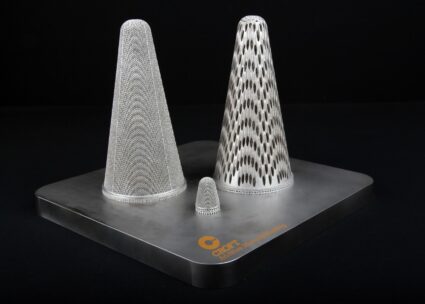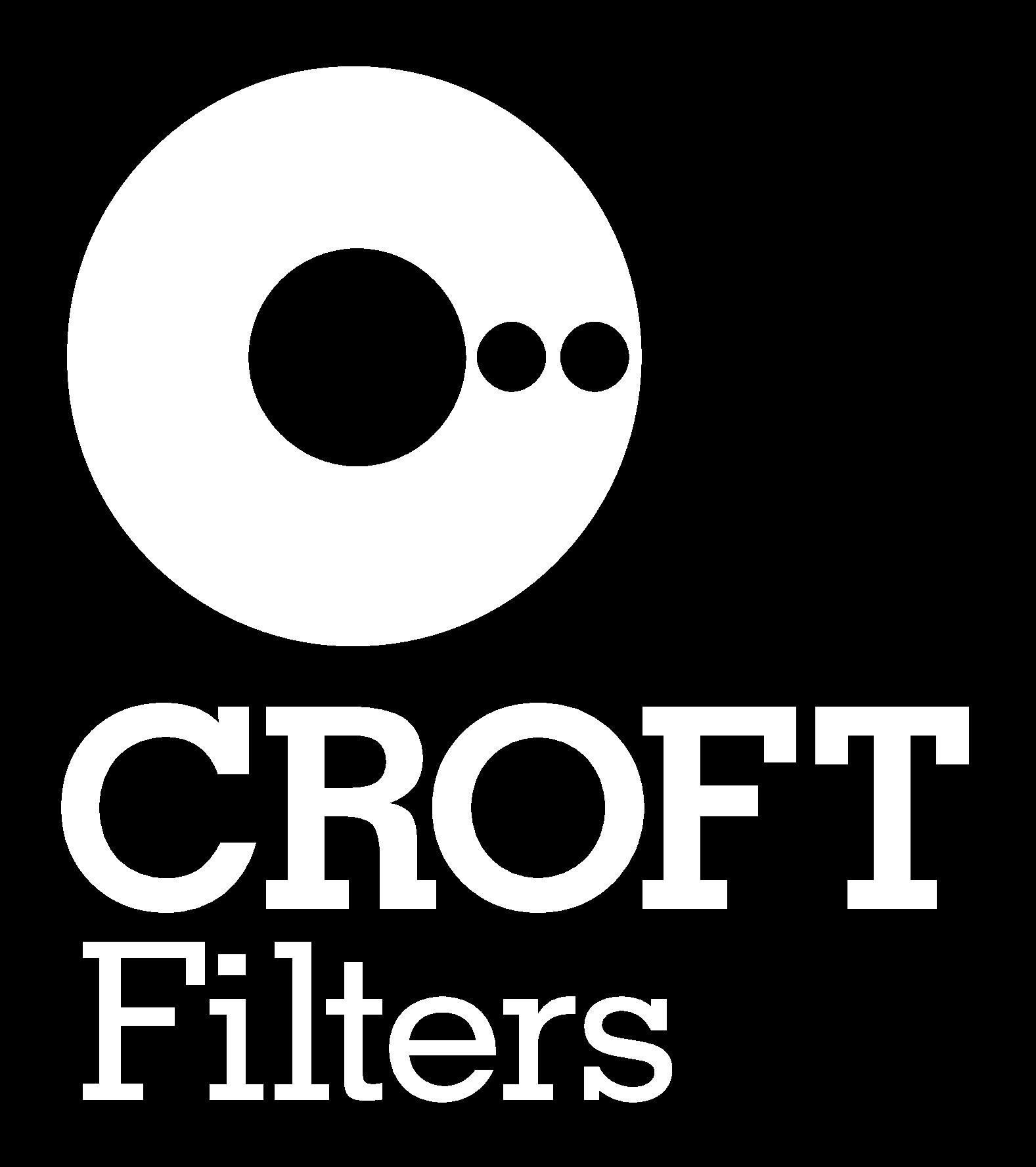 Add My Company
Add My Company
10 Years of Croft Additive Manufacturing

Introduction
Croft Filters Ltd, based in the North West of England, was founded in 1986 by two brothers, Mark and Neil burns. The company initially traded in mesh, which soon led to an expansion into filter fabrication. Today, Croft manufactures bespoke filters for companies worldwide, supplying various sectors including pharmaceuticals, engineering, and power generation.
Due to the custom nature of Croft’s products, the company undertakes various research projects to develop conventional filtration designs. In 2012, Croft sought to improve the traditional cone filter by incorporating aerodynamics, drawing on Director Mark Burns’ experience as an engine fitter in the RAF and Neil’s extensive expertise in mesh. Mark and Neil identified that aligning the holes in the filter with the system’s directional flow would reduce pressure drop and pumping power, resulting in a more efficient operating system.
Various prototypes were produced to align the holes, using drilling and other conventional manufacturing methods. However, it wasn’t until Neil Burns returned from a trade show on future manufacturing methods that a solution was found: Additive Manufacturing (AM), also known as metal 3D printing, would enable the innovative filter design.
How it works
Additive Manufacturing works by adding materials in layers, which are melted or fused to form the part. This technology enables the production of complex components as single units, reducing both waste and costs by up to 90 per cent. Unlike traditional manufacturing, which removes material, AM builds parts layer by layer.
Advantages
When Additive Manufacturing first entered the market, it was common to see prototyping being carried out with small components. This has changed drastically, with companies now using this method to manufacture final products parts.
Machine parts consisting of various components can now be manufactured as a single part from one piece of metal through the additive manufacturing process, which builds materials layer by layer. Another key benefit of this approach is that it reduces material costs, as additive manufacturing uses only the amount needed to create a part, unlike traditional methods that cuts down larger pieces of material.
A further advantage of this manufacturing process is that it allows designers and manufacturers to incorporate support into designs where traditional methods might have produced weaknesses. Unnecessary areas can be removed, resulting in lighter components. Reducing a product’s weight adds value, particularly in transportation, as demonstrated by the buy-to-fly ratio.
Lead times can be significantly reduced when compared to conventional manufacturing methods such as casting, allowing products to reach the market in days rather than months, as time-consuming tooling research and manufacturing are not required. This capability is crucial for industries needing critical parts on short notice, and it also enhances profitability, making it one of the most appealing aspects of 3D printing.
Additive manufacturing also allows for greater design freedom, enabling products to be created cost-effectively and allowing engineers to fabricate multiple versions of a design, fostering creativity. This flexibility also enables us to customise products to meet each customer’s individual requirements, a key quality of Croft’s business model.
Additive Manufacturing is increasing in Availability and Accessibility
Companies across a wide range of sectors can unlock the many benefits of additive manufacturing, with training available at all levels—from introductory sessions for beginners to advanced courses on tools and technology. With its increasing availability and accessibility, the future of this technology looks very promising.
Key mile stones
In 2012, Croft began testing filters with support from Innovate UK, whose mission is to ‘help companies grow through the development and commercialisation of new products, processes, and services’—support that has been greatly beneficial to our company. Croft has successfully completed an Innovate UK research project in collaboration with the National Physical Laboratory, bringing us closer to supplying porous Additive Manufactured filters. This project focused on determining filtration levels, which produced some exciting findings and filtration rates for various porous AM filter designs. This breakthrough has turned Croft’s AM design into a future product.
The Straightliner™ Filter, shown in the photo here, was the first to be manufactured using AM technology in 2012. It was specifically designed to reduce pressure drop, thereby decreasing operational costs and lowering the product’s carbon footprint over its lifespan.
In 2016, Croft designed and created disc filters using additive manufacturing technology to address issues that typically arose from conventional manufacturing constraints. Problems such as recessing and distortion, making it easier to clean.
At the 2019 FiltCon event, Croft Additive Manufacturing proudly accepted the 2018 American Filtration Society Engineering Merit Award for the Quick Release Filter. This filter offers a solution to reduce downtime in filtering systems where filters require regular changing and cleaning. The process can be time-consuming, particularly when pipework needs to be modified to extract the filter. The award recognises ‘the most significant new product’ from the previous year.
2021 saw the development of Croft’s EXOStructure(trademark sign) Mesh Filters, a product type that combines conventional methods with AM technology to enhance the strength and stability of woven wire mesh filters. Greater filter efficiency is achieved through localised support, which helps overcome the limitations of traditional wire mesh filters by maintaining their shape and minimising any reduction in open area when support is added. These filters are supplied to various industrial sectors, with the most common application being last-chance filters in fuel systems.
On 31 July 2023, Neil Burns retired from the company after 37 years as a director at Croft, leaving a lasting impact on the business. Neil was responsible for introducing additive manufacturing into the company, enabling Croft to produce bespoke product solutions used across various sectors, including Formula 1 and oil and gas.
We are proud to say we retained our Investors in People accreditation again in April 2024, which is a three year accreditation. This award is a fair, trusted, and transparent certification that promotes the growth and development of our staff and aligns with our company strategy. This achievement signifies Croft’s commitment to “leading, supporting, and improving” the experiences of our people in the workplace. The scheme assesses how companies perform against its structure and provides guidance on areas for improvement, focusing on engagement, communication, organisational culture, and work practices. This helps us recognise areas for enhancement as we continually strive for improvement.
Over the years, Croft has utilised additive manufacturing to design bespoke medals for the worthy winners of the best scarecrow and egg-throwing competitions at Croft Carnival, an event we still support today. The carnival will celebrate its 100th year next year, and we plan to design special medals for these events to commemorate this milestone.
How Croft can help
With nearly 40 years of experience in manufacturing bespoke filtration solutions, we have helped companies across a wide range of industries overcome their filtration challenges. We manufacture high-quality, custom filters and are dedicated to resolving any issues our customers may face in numerous specialised fields.
For more information on 10 Years of Croft Additive Manufacturing talk to Croft Filters Ltd
